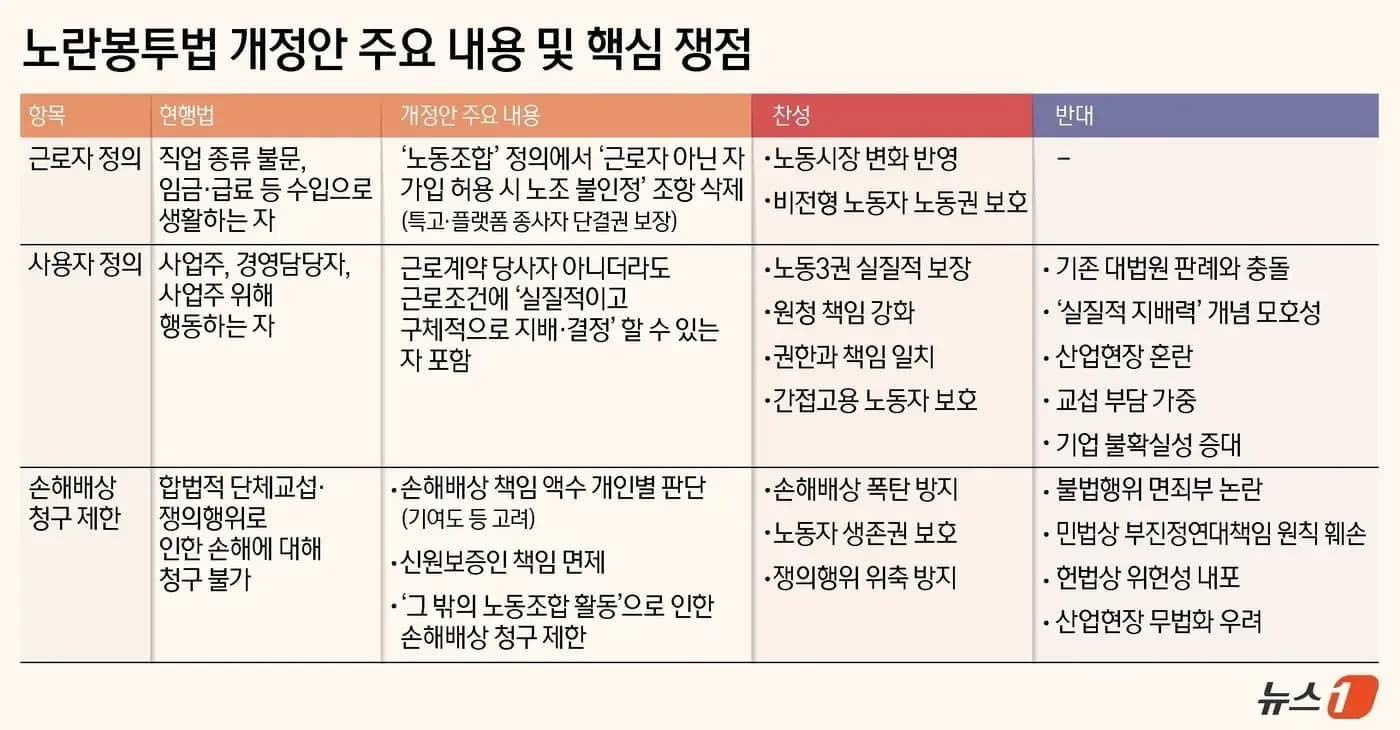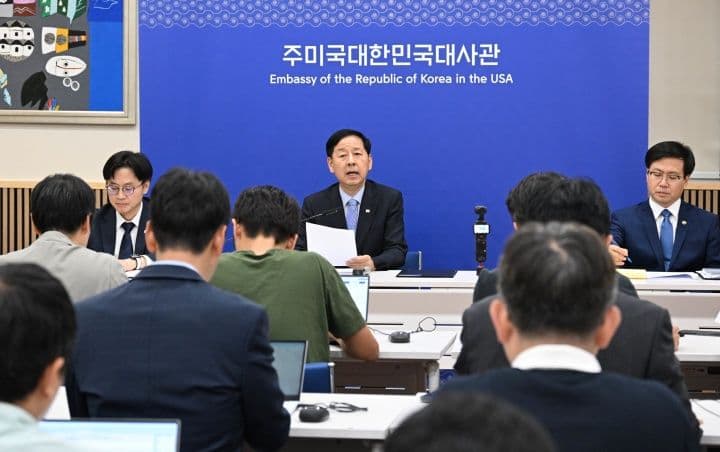The Quiet Revolution: Unpacking Korea's Pursuit of Industrial Harmony Through Labor Reform
Unpack Korea's 'Yellow Envelope' labor reform. Discover how this strategic legal shift aims to balance power, promote dialogue, and foster industrial peace, dispelling common misconceptions.
Beyond the Barricades: Reassessing Korea's Labor Relations Landscape
For too long, the narrative surrounding labor relations in South Korea has been dominated by images of confrontation and disputes. Yet, a significant legislative effort, often dubbed the 'Yellow Envelope Act' (노랑봉투법), seeks to fundamentally shift this perception, moving beyond the familiar barricades towards a more harmonious industrial future. Proponents, particularly within the , emphatically state that concerns about this bill inciting illegal strikes are unfounded. Instead, they champion it as an 'Industrial Peace Promotion Act,' designed to address the deep-seated structural conflicts and vicious cycles that have plagued the nation's workplaces. The core ambition here is not to escalate tensions, but to rebalance the scales of labor-management relations, which have historically skewed in one direction. By doing so, the act aims to rectify situations where dialogue itself becomes illicit, paving the way for a more equitable and stable environment where communication is not just possible, but encouraged, fostering genuine industrial peace.

A New Blueprint for Dialogue: The Core Principles of the Proposed Act
At its heart, the proposed Yellow Envelope Act lays down a new blueprint for engagement, emphasizing clarity and fairness in negotiation. A primary objective is to precisely define and solidify employer responsibilities, a crucial step in establishing a proper order for collective bargaining. This is particularly vital in situations involving subcontracted workers, who, despite their direct involvement in operations, have often been barred from engaging in meaningful dialogue with the primary contractors holding the real decision-making power. The act aims to dismantle these barriers, actively promoting dialogue in such previously inaccessible arenas. Imagine a workplace where autonomous and horizontal cooperation isn't just an aspiration but a tangible reality; this legislation is envisioned as the critical first step. The expectation is that by clarifying the responsibility structure between main contractors and subcontractors, disputes will naturally diminish, leading to the construction of more productive labor-management relationships across the board.
Aligning with Global Norms: International Benchmarks and Domestic Imperatives
A frequent criticism leveled against the Yellow Envelope Act is the potential for it to deter foreign investment. However, proponents are quick to counter, asserting that the reform isn't a departure from global standards but rather a robust alignment with them. This legislative push has meticulously incorporated recommendations from the , demands from key trading partners like the , and even reflects precedents set by own Supreme Court rulings. Such comprehensive consideration makes it, in essence, an enactment that fully meets international benchmarks. Dismissing claims of adverse effects on foreign investment, advocates emphasize that fulfilling international commitments through such reforms is far from detrimental; it builds trust and predictability. This isn't just about domestic policy; it's about positioning itself as a responsible and modern player in the global economic landscape, one that upholds the fundamental rights of workers in line with established international principles.
Cultivating Predictability: How Clarified Responsibilities Benefit Business
While some voices express apprehension that the Yellow Envelope Act might encourage illegal strikes, a deeper look reveals its potential to actually foster greater predictability for businesses. By clearly defining the scope of employer responsibility, particularly extending it to include primary contractors who exert substantial influence over subcontracted workers, the act intends to reduce the ambiguity that often fuels disputes. When the lines of responsibility are distinct, and avenues for dialogue are formally established, the likelihood of prolonged and disruptive conflicts decreases. This isn't just beneficial for workers; it offers companies a more stable and foreseeable operational environment. Fewer protracted disputes mean less uncertainty and more consistent production. Ultimately, the goal is to cultivate a virtuous cycle: enhanced worker rights and clearer responsibilities lead to a more stable industrial landscape, which in turn boosts corporate predictability and fosters a more productive, forward-looking relationship between labor and management.
The Path to Lasting Peace: Navigating Implementation and Future Dynamics
The Yellow Envelope Act represents a significant stride towards what its advocates term an 'Industrial Peace Promotion Act,' encouraging dialogue as the preferred alternative to contentious disputes. A critical aspect of this reform is the rational adjustment of excessive damage claims that have, in the past, pushed workers to extreme measures. By mitigating such burdens, the law aims to create an environment where both labor and management are more inclined to seek resolution through discussion rather than confrontation. Looking ahead, while the is steadfast in its commitment to passing the bill, they also acknowledge the need to listen to the legitimate concerns of the business community post-legislation. The emphasis is on ensuring a 'soft landing,' where the new framework harmoniously integrates with industrial competitiveness. This forward-looking approach suggests a commitment to refining the system as it takes root, aiming for a truly balanced and sustainable industrial peace that benefits all stakeholders in the long run.
Related Articles

The Price of Stability: Unpacking Korea's Sweeping Economic Commitments to the US

The Price of Stability: Unpacking Korea's Sweeping Economic Commitments to the US

Seoul's Strategic Gambit: How Investment Becomes the New Currency in Global Trade Deals

Seoul's Strategic Gambit: How Investment Becomes the New Currency in Global Trade Deals

Unprecedented Justice: Yanapan's Labor Saga and the Fight for Thailand's Workforce Dignity

Unprecedented Justice: Yanapan's Labor Saga and the Fight for Thailand's Workforce Dignity

Reclaiming Rural Futures: Yong Hye-in's Basic Income Blueprint for a Dignified Korea
